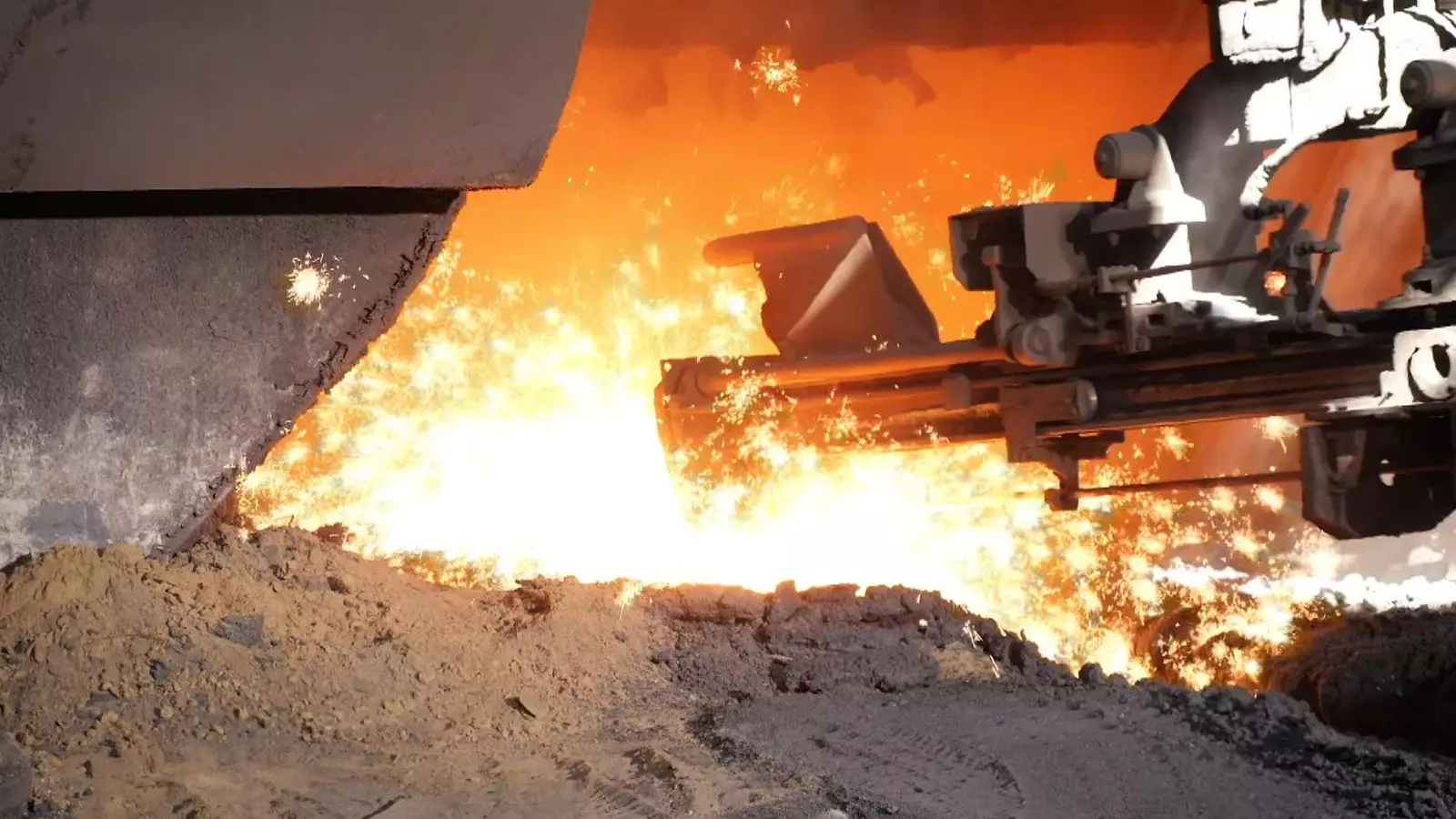The recent developments surrounding British Steel have unveiled a deeply troubling narrative—one that highlights the precarious balance between national industry and foreign ownership. Jingye, the Chinese conglomerate that owns British Steel’s last operating blast furnaces in Scunthorpe, has made the alarming decision to halt essential supplies of raw materials necessary for steel production. This shocking move has thrown the future of Britain’s steel industry into disarray, raising crucial questions about the security of essential services in the country and the sustainability of our manufacturing base.
It is particularly stunning that this crisis has emerged at a time when Britain grapples with broader economic challenges, including elevated inflation, supply chain disruptions, and a wavering global marketplace. The last two domestic sources of virgin steel, which rely on iron ore rather than recycled materials, are on the brink of being shuttered, leaving the country precariously dependent on imports. This dependence could have dire implications for critical infrastructure projects and ultimately for the national security of the UK.
The Breakdown of Negotiations
The recent breakdown of negotiations between Jingye and the UK government reflects a broader issue: the challenges of engaging with foreign entities that prioritize profit over local welfare. After rejecting a considerable £500 million offer from the government aimed at transitioning to more sustainable electric arc furnaces, Jingye has effectively put the last nails in the coffin of traditional steelmaking in Britain. The owners’ dismissal of this offer—which they deemed insufficient—highlights an unsettling reality: foreign stakeholders may not have the UK’s best interests at heart. Instead, they focus on maintaining their own profit margins, disregarding any wider consequences for the British economy and jobs.
The Chinese company’s actions underscore a worrying trend of neglect towards industries that are vital to Britain’s infrastructure and overall economic health. In contrast, Tata Steel’s preparation to convert its Port Talbot facilities to electric arc furnaces shows an acknowledgment of both market demands and global sustainability commitments. The stark difference between these industries signals the desperation of the remaining operational steelworks and their precarious future under foreign ownership.
National Security and Economic Independence
The impending closure of the Scunthorpe furnaces speaks volumes about the state of national security. The steady decline of domestic steel production highlights the fragility of the UK’s industrial strategy, especially in a climate where geopolitical tensions, such as the trade conflicts with the United States, threaten economic stability. Gareth Stace, the director of UK Steel, aptly articulated the frustrations by pointing out the breakdown of fruitful discussions between the government and British Steel. The situation raises an alarming question: can the UK afford to remain tethered to foreign countries for essential materials?
With the threat of a trade war looming and the risk of American support for Europe dwindling, the need to revitalize national industries cannot be overstated. The prospect of relying on imports for critical materials necessary for infrastructure and defense is a gamble that many nations shy away from—but it seems the current UK government is not equipped to navigate these treacherous waters. Nationalizing these furnaces may be a radical solution, but how can we allow ourselves to become so vulnerable to external forces?
A Road Ahead: Finding a Balanced Approach
Ultimately, the crisis confronting British Steel serves as a clarion call for a reevaluation of industrial policies and strategies in the UK. The government should not shy away from making bold decisions, especially when national security is at stake. Encouraging homegrown initiatives and supporting British firms that demonstrate commitment to sustainability and the local economy must become a priority.
The path forward may involve tough choices, including the possibility of nationalization, but these decisions must be viewed through the lens of long-term stability and resilience. The future of British industry—and by extension, British society—should not be left solely in the hands of investors who do not share the country’s vision for prosperity. Ultimately, this is not just a question of steel—it is a question of who we are as a nation and what we are willing to do to safeguard our economic future.

